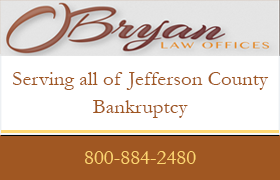 Masonic Home Workout Lawyers, Kentucky
Masonic Home Workout Lawyers, Kentucky
-
Sponsored Law Firm
-
 x
x

Click For More Info:
-
Obryan Law Offices
9311 Preston Hwy Louisville, KY 40229» view mapBankruptcy Lawyers That Fight For You
Obryan Law Offices has helped thousands of families restore peace and order to their lives. Call us today!
800-884-2480
Not enough matches for Masonic Home Workout lawyer.
Below are all Masonic Home Bankruptcy & Debt lawyers.
Lawyers
1-10 of 28 matches
Workout, Consumer Bankruptcy, Commercial Bankruptcy, Bankruptcy
Personal Injury, Bankruptcy, Civil Rights, Gay & Lesbian Rights, Adoption
Bankruptcy, Workout, Corporate, Uniform Commercial Code, Real Estate
Personal Injury, Bankruptcy, Administrative Law, Family Law, Government
Bankruptcy, Credit & Debt, Banking & Finance, Corporate, Civil Rights
Collection, Credit & Debt, Litigation, Real Estate, Commercial Real Estate
Traffic, State Appellate Practice, Collection, Medical Malpractice




 Julie Obryan Jefferson, KY
Julie Obryan Jefferson, KY About UsObryan Law Offices
About UsObryan Law Offices FAQFrequently Asked Questions
FAQFrequently Asked Questions